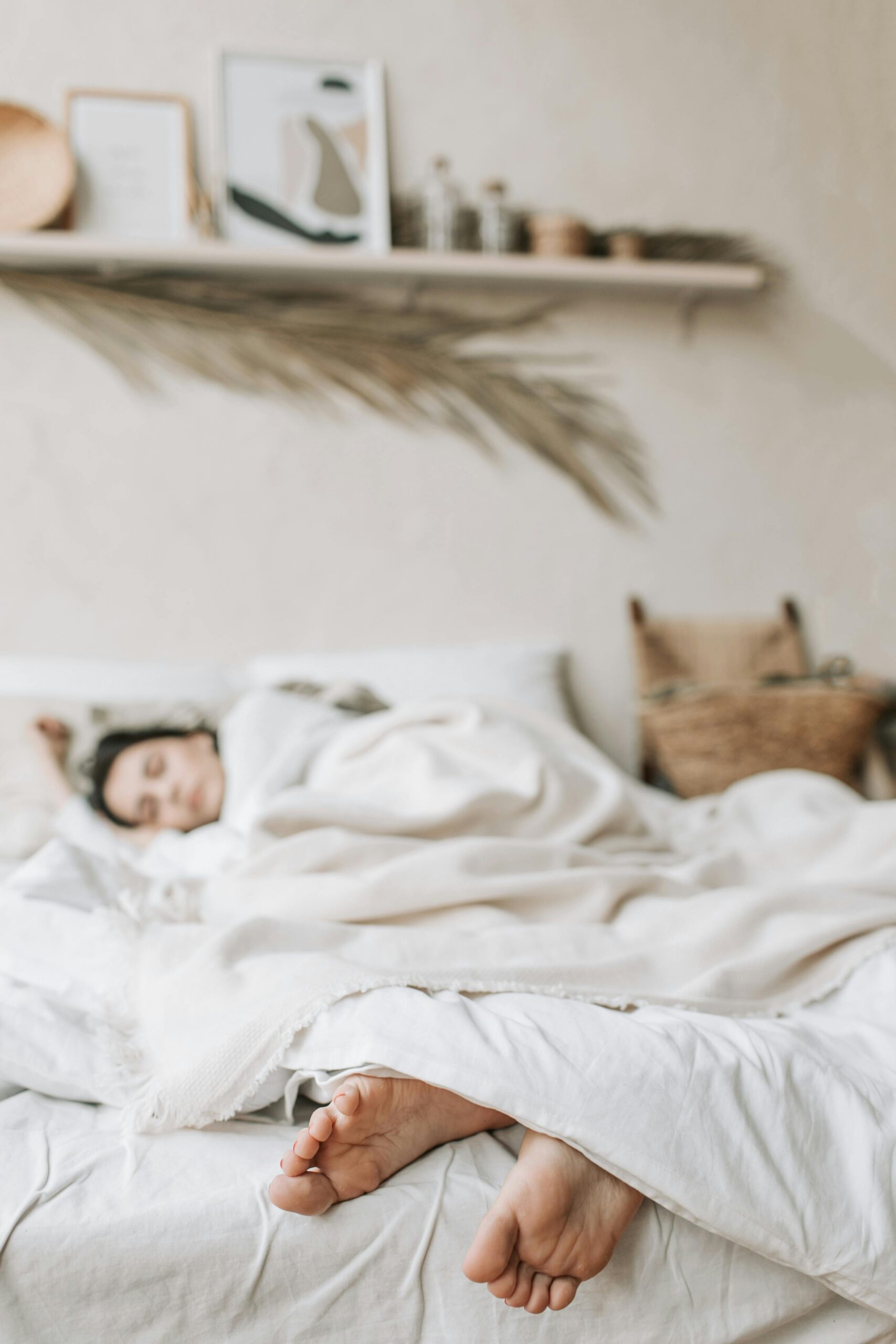Sleep quality has a profound impact on our overall health and well-being. Despite its importance, many people struggle to get a good night’s rest. Whether you have trouble falling asleep, staying asleep, or waking up feeling refreshed, improving your sleep quality can make a significant difference. Here are ten effective, natural strategies to enhance your sleep.
Quick Summary
- Establish a consistent sleep schedule.
- Create a relaxing bedtime routine.
- Optimize your sleep environment.
- Limit exposure to screens before bed.
- Be mindful of your diet and hydration.
- Exercise regularly but not too close to bedtime.
- Manage stress and anxiety.
- Avoid naps late in the day.
- Exposure to natural light during the day.
- Limit caffeine and alcohol intake.
Establish a Consistent Sleep Schedule
Consistency is key when it comes to sleep. Going to bed and waking up at the same time every day, including weekends, helps regulate your body’s internal clock. This regularity makes it easier to fall asleep and wake up naturally.
For instance, if you aim to get seven to eight hours of sleep, set a bedtime that allows you to wake up refreshed and stick to it. Over time, your body will adapt to this schedule, improving the quality of your sleep.
Create a Relaxing Bedtime Routine
Developing a calming pre-sleep routine can signal to your body that it’s time to wind down. Activities such as reading a book, taking a warm bath, or practicing gentle yoga can be very effective.
For example, you might spend 30 minutes before bed engaged in a quiet activity away from bright screens. This helps reduce mental stimulation and prepare your body for rest.
Optimize Your Sleep Environment
Your bedroom should be a sanctuary for sleep. Factors such as room temperature, noise levels, and lighting can significantly impact sleep quality.
Keep your room cool, dark, and quiet. Investing in blackout curtains can block external light, while earplugs or a white noise machine can drown out disruptive sounds. Additionally, a comfortable mattress and pillows tailored to your sleeping position can prevent discomfort and improve sleep.
Limit Exposure to Screens Before Bed
The blue light emitted by phones, tablets, and computers can interfere with the production of melatonin, the hormone that regulates sleep. To mitigate this, avoid screens for at least an hour before bed.
If you must use a device, consider using a blue light filter or wearing blue light-blocking glasses. These tools can reduce the impact of screen light on your sleep cycle.
Be Mindful of Your Diet and Hydration
What you eat and drink can affect your sleep. Avoid heavy meals, caffeine, and alcohol close to bedtime.
For example, a light snack that includes sleep-promoting foods such as bananas, almonds, or warm milk can be beneficial. Staying hydrated is important, but try to limit fluids in the evening to prevent frequent trips to the bathroom at night.
Exercise Regularly but Not Too Close to Bedtime
Regular physical activity can help you fall asleep faster and enjoy deeper sleep. However, timing is crucial.
For example, vigorous exercise right before bed can have a stimulating effect, making it harder to fall asleep. Aim to finish workouts at least three hours before bedtime.
Manage Stress and Anxiety
Stress and anxiety are common culprits of poor sleep. Techniques such as meditation, deep breathing exercises, or journaling can help calm your mind before bed.
For instance, taking a few minutes each night to write down your thoughts and worries can help clear your mind and reduce nighttime anxiety.
Avoid Naps Late in the Day
While short naps can be beneficial, long or late-afternoon naps can interfere with nighttime sleep.
If you need to nap, keep it under 30 minutes and avoid napping after 3 p.m. This will help ensure that your body is ready for sleep at night.
Exposure to Natural Light During the Day
Exposure to natural light, especially in the morning, helps regulate your circadian rhythm. Spend time outside each day or open your blinds to let in sunlight.
For example, a morning walk can boost your mood and energy levels while also helping to set your internal clock for better sleep at night.
Limit Caffeine and Alcohol Intake
Caffeine and alcohol can both negatively impact sleep. Caffeine is a stimulant that can keep you awake, while alcohol, though initially sedative, can disrupt your sleep cycle later in the night.
Try to limit caffeine intake to the morning and avoid alcohol close to bedtime to improve sleep quality.
Final Thoughts
Improving sleep quality naturally involves making intentional changes to your daily habits and environment. By following these ten strategies, you can create a sleep-friendly lifestyle that promotes better rest and overall health. Remember, small adjustments can lead to significant improvements in your sleep patterns and overall well-being.

